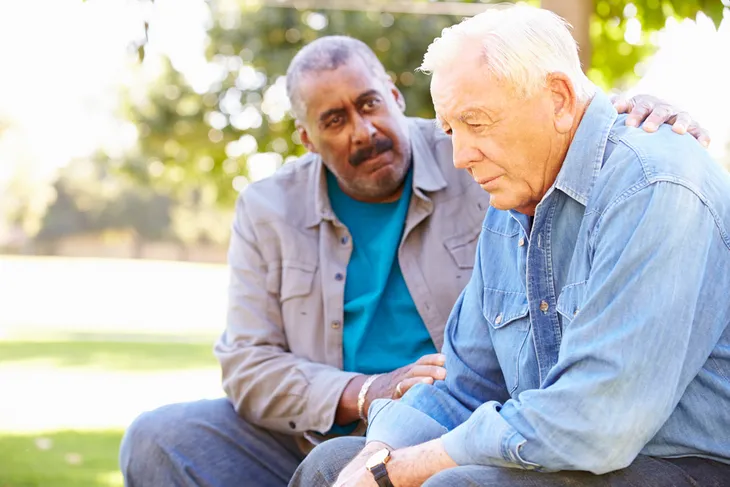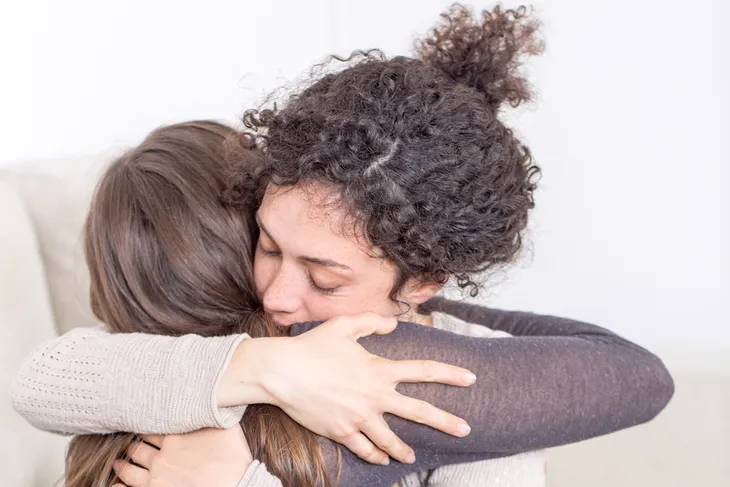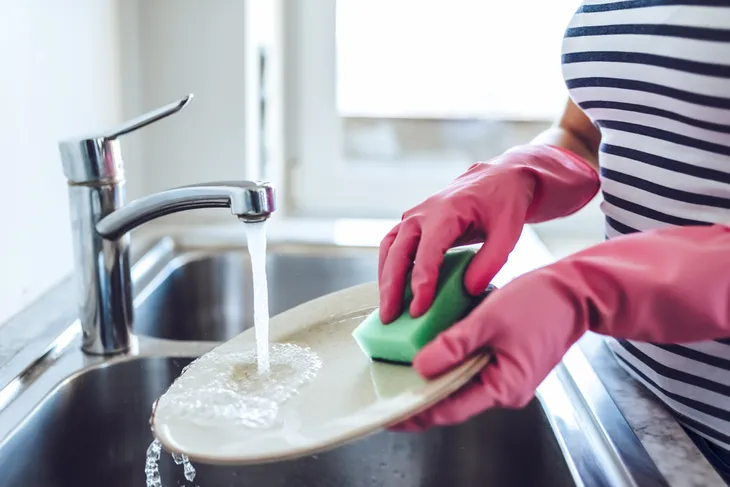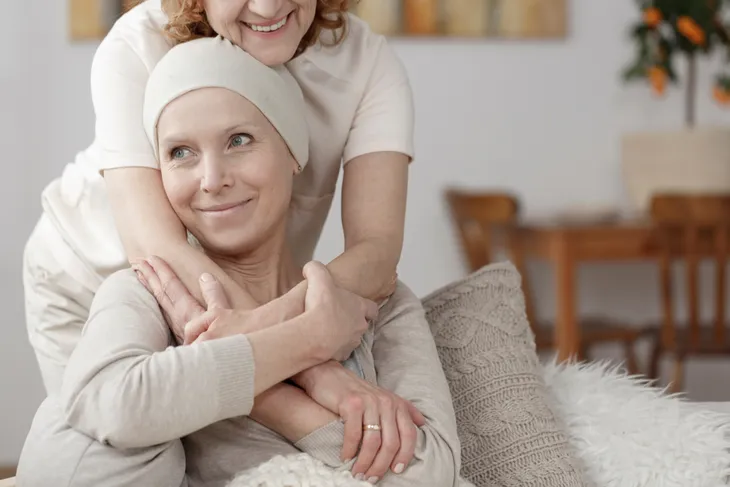- There are no set rules for supporting someone with cancer, so consider your friend’s personality and preferences to help guide you.
- Since just being there for your friend is meaningful, regularly send texts or make calls to let them know they’re important to you.
- Sometimes it’s the little things that mean the most, so it can help to give small gifts and find practical ways to offer assistance.
According to the Centers for Disease Control and Prevention (CDC), more than 1.6 million Americans are diagnosed with cancer every year. If someone you know recently received a cancer diagnosis, then you might be wondering how to support them. Every friendship is different, but there are simple ideas to help you approach the situation and show you care.
Prepare Yourself
Before talking with your friend, take some time to prepare yourself. Since it can be emotionally difficult to learn a friend has cancer, it can help to acknowledge your feelings and allow yourself to be sad. Then, you can focus on your friend instead of your emotions when you talk to them.
It can also help to prepare yourself for potential changes to your friend’s appearance. For example, side effects of cancer and cancer treatments can include hair loss, fatigue, and weight changes.
Things To Avoid Saying
Even though you wouldn’t intentionally hurt your friend’s feelings, it’s possible to say something insensitive without realizing it. So, try to put yourself in your friend’s shoes. Think about a time you were going through something challenging. What did you want people to say?
Cancer.Net has a few unhelpful phrases to avoid:
- “I know just how you feel.”
- “I know just what you should do.”
- “I’m sure you’ll be fine.”
- “Don’t worry.”
- “How long do you have?”
What To Say Instead
If you don’t know what to say to a friend with cancer, the American Cancer Society (ACS) says you aren’t alone. But don’t disappear because you’re afraid of saying the wrong thing. In fact, it’s OK to say you don’t know how to start the conversation.
ACS recommends keeping it simple, heartfelt, and honest. Here are a few examples the source provides:
- “I’m not sure what to say, but I want you to know I care.”
- “I’m sorry to hear that you are going through this.”
- “How are you doing?”
- “If you would like to talk about it, I’m here.”
- “I’ll keep you in my thoughts.”
Offer Practical Help
While your first instinct might be to extend a broad offer of help — “Let me know if I can help with anything,” for instance — your friend might find that overwhelming. They might be more likely to accept your offer if you instead propose something specific.
So, you could offer to help with household chores or run errands. If they have underage kids, then you could volunteer to babysit or drive them to school. And if you’re already going to the grocery store, then you could call or text your friend to see if you can pick up anything for them.
Ask Before Visiting
Since cancer can be isolating, the ACS recommends visiting your friend frequently. The source suggests “short, regular visits rather than long, infrequent ones.” However, don’t drop by unexpectedly.
The ACS says it’s important to call or text before you visit. Whether visiting your friend at home or the hospital, reach out first and give them permission to say it isn’t a good time. Also, be understanding if they cancel at the last minute.
Give Thoughtful Gifts
Thoughtful gifts can help brighten your friend’s day. Instead of splurging on one extravagant gift, the ACS suggests giving smaller gifts often — and insisting you don’t expect a thank-you note. Think of little things that’ll make them smile, such as cozy socks, photos of friends, and flowers.
And while meals like casserole and soup are common gift ideas, Memorial Sloan Kettering Cancer Center (MSKCC) suggests reconsidering. The source says your friend might “need to stick to a special diet during treatment, have symptoms like nausea and vomiting, or be more vulnerable to infections.”
Make Flexible Plans
Making plans can give your friend something fun to look forward to in the future. This may be a lonely and tiring time in your friend’s life, so like gifts, plans can help them perk up. However, Cancer.Net suggests making plans that are easy to change.
During this time, your friend may have days they don’t feel like getting together or medical appointments that pop up. So, flexible plans allow your friend to cancel or reschedule if they need to. For instance, you could plan to take them to lunch, go to a movie, or come over to watch something on TV.
Touch Base Regularly
The ACS says studies show the importance of supportive friends. Not only can emotional support help someone with cancer stay positive, but the source says it can also help them adjust to changes. So, you can make a difference by regularly letting your friend know you’re thinking about them.
For one thing, something as simple as sending regular check-in texts can help. You could ask how they’re doing, what they’ve been up to, or if they want to get together soon. Depending on your friend’s sense of humor, you could also send jokes and videos you think will make them laugh.
Listen First, Then Speak
When it comes to topics of conversation, MSKCC recommends taking cues from your friend. While some people want an outlet to talk about their cancer, others would rather get their minds off the subject. If you’re unsure of your friend’s preference, then you can ask how they feel about it.
Even if your friend does want to discuss cancer, Cancer.Net says sometimes people need a break from talking about it. So, it can help to bring up their interests. For instance, you could ask about their family or talk about TV shows you both watch.
Form a Support Team
Setting up a support team is another thing you can do to help your friend. To get the ball rolling, reach out to their other friends and family. Then, you can work together to find new ways to show support.
For example, you could pick one person to keep the rest of the group updated about your friend’s status. That way, your friend doesn’t have to tell everyone whenever something changes. The designated person can also let the group know if your friend wants more calls and visits or if they need more alone time.
Additionally, HowStuffWorks says some sites can make it easier to help. If your friend says they could use help with food, the site Meal Train could be useful. It lets you set specific days and times for meals. Plus, it lets you note food preferences and allergies. The group could also consider GoFundMe to help with medical bills.
Don’t Forget the Caregiver
The ACS defines the caregiver “as the person who most often helps the person with cancer and is not paid to do so.” It’s often the person’s spouse, parent, or grown child. So, the caregiver typically has to juggle other responsibilities with their new caregiving role — all while coping with their own feelings.
As a result, your friend’s caregiver might welcome a break. For instance, you could arrange to stay with your friend while the caregiver gets a few hours away from the house. Or you could take something off their plate, such as driving their kids to extracurricular activities or going to the grocery store.
The Bottom Line
Keep in mind there’s no rule book for supporting someone with cancer. So, it’s OK to feel uncertain about how to help at first. But don’t let that uncertainty keep you from being there. As the ACS puts it, “Your friend with cancer needs you and your support.”
So, regularly let your friend know you’re thinking about them. Send check-in texts, ask to visit, and give thoughtful gifts. As you spend more time with your friend, you’ll learn more about their needs and can tailor your help accordingly.















